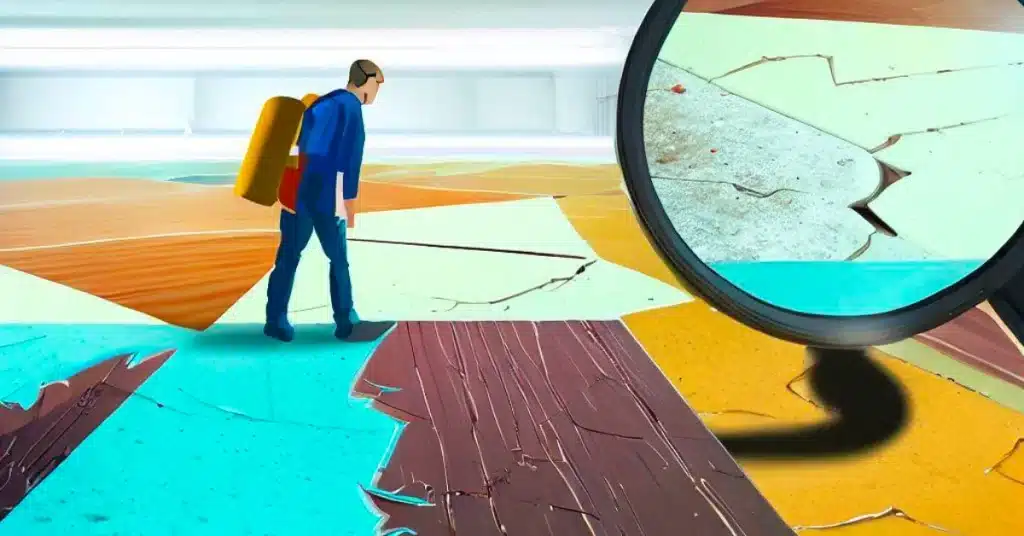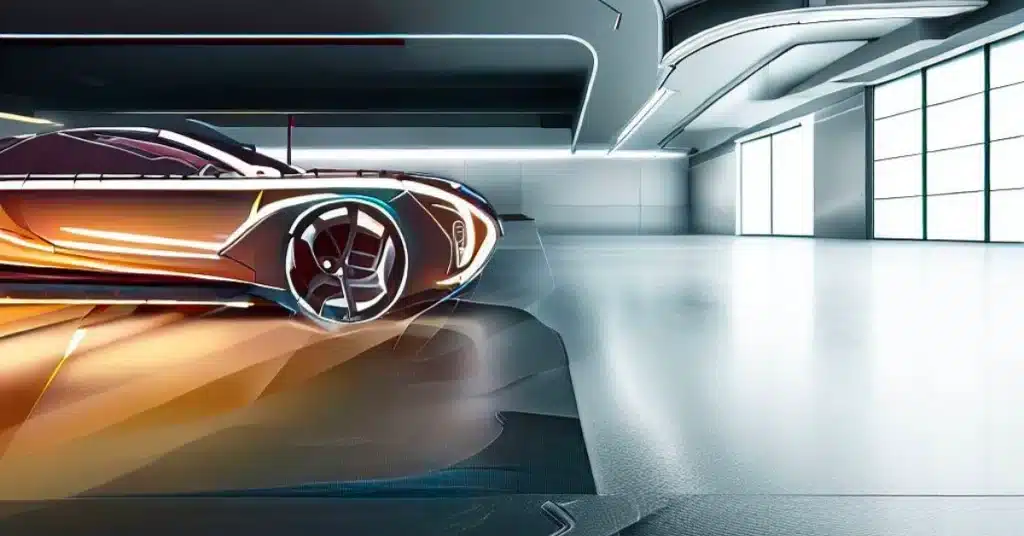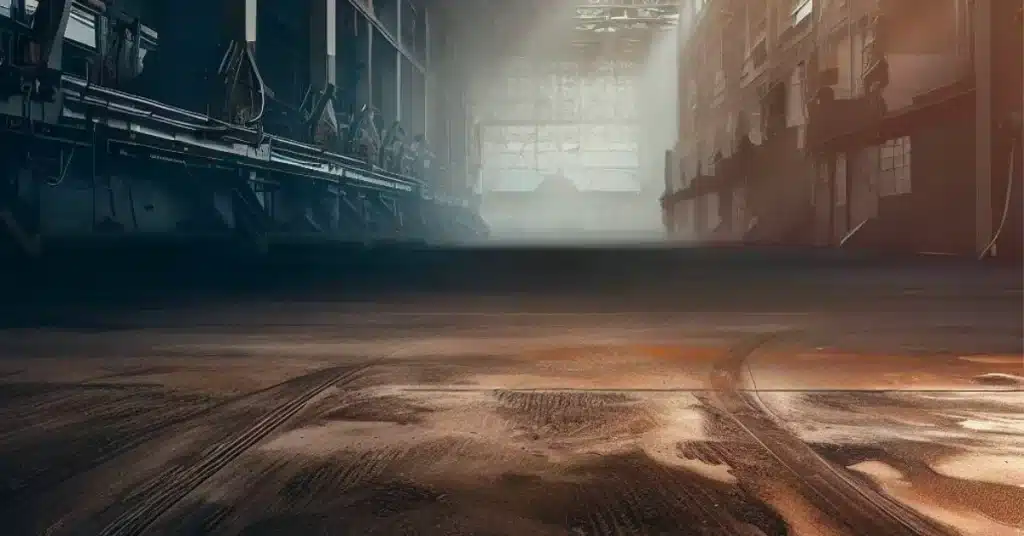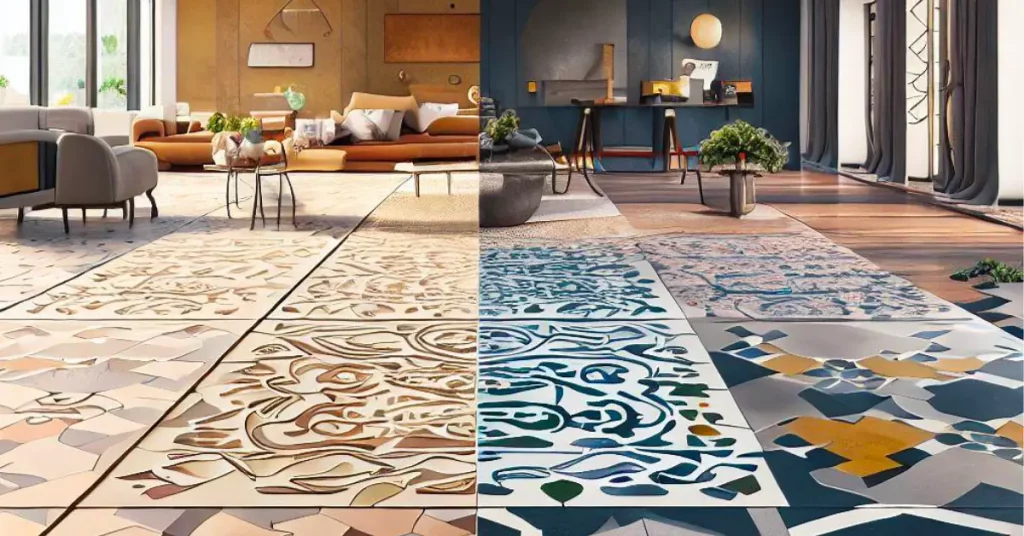If you’re on a quest to answer the question, “what is better than epoxy for garage floor” you’re on the right track.
While a long-standing choice for garage floors, Epoxy is one of many games in town. Various other flooring options offer comparable durability, ease of maintenance, and even more advantages.
Let’s delve into some of these alternatives to epoxy for the garage floor.
Read More: Best Epoxy For Basement Floor
What is Better than Epoxy for Garage Floor?
Delving Deeper: Why Consider Alternatives to Epoxy?

Epoxy has long been a darling in garage flooring and for good reasons. Its hard and resistant surface, coupled with an appealing gloss, offers an attractive flooring solution.
However, the flip side of the epoxy coin reveals some traits that might be less desirable for some homeowners.
A significant drawback of epoxy flooring is its tendency to yellow over time, especially when exposed to direct sunlight.
This can make your garage floor look older and less appealing than it is. Additionally, the installation process of epoxy flooring isn’t for the faint-hearted.
It’s complex and time-consuming, often taking several days for the coating to cure fully before you can use the garage again.
While epoxy offers a reasonable resistance level against spills, it might falter in the face of harsh chemicals.
Over time, repeated exposure to these chemicals can damage the floor. Plus, the aesthetic aspect of epoxy flooring, although shiny and clean, might differ from everyone’s liking.
It needs the customization options that some homeowners crave.
Read More: 1 Part vs. 2 Part Epoxy
Polyaspartic: The Next Generation of Garage Flooring

Stepping into the limelight as a noteworthy alternative to epoxy is polyaspartic, a type of polyurea. This relatively new kid on the block is making waves in the garage flooring world thanks to its advantages over traditional epoxy.
One of the most compelling features of polyaspartic flooring is its rapid installation time.
Unlike epoxy which could leave your garage out of commission for several days, polyaspartic flooring can be installed and ready to use often within a single day.
This fast turnaround can be particularly beneficial for commercial spaces that can’t afford prolonged downtime.
When it comes to durability, polyaspartic flooring stands tall. Its resistance to abrasions, chemical spills, and UV radiation means it won’t yellow over time like epoxy.
It also boasts flexibility, which enhances its resistance to cracking under pressure or impact.
Polyaspartic vs. Epoxy: A Closer Look
Comparing polyaspartic with epoxy reveals stark differences. Polyaspartic coatings, with their flexibility, are less likely to crack under pressure or impact.
They also have a superior UV resistance that prevents yellowing, a common issue with epoxy.
Polyaspartic coatings offer a quicker installation, which is a boon if you need to minimize garage downtime.
Moreover, they provide a broader window of application in terms of temperature, making them suitable for more climates.
While epoxy coatings are typically less expensive, polyaspartic coatings’ superior features and performance could make the additional cost worthwhile. It’s about weighing immediate costs against long-term value.
Polyurea: A Strong Contender

Polyurea is another alternative to the epoxy that deserves attention. This type of coating shares many features with polyaspartic but also has some unique characteristics.
A standout trait of polyurea is its super-fast curing time. In many cases, your garage floor can be ready to use in just a few hours.
However, this rapid curing can be a double-edged sword. It requires a swift and skilled installation process to avoid issues with the finish.
Polyurea shines in its resistance to a vast range of chemicals, making it an excellent choice for garages that frequently deal with automotive fluid spills.
In terms of flexibility, polyurea outperforms even polyaspartic, offering superior resistance to cracking and peeling.
Interlocking Floor Tiles: The Key to Customization

For those who put a high premium on customization and easy installation, interlocking floor tiles might be the best alternative to epoxy.
These tiles are available in various materials, including PVC and rubber, and an array of colors to suit any design preferences.
One of the most appealing aspects of interlocking tiles is the simplicity of the installation process. It’s a quick and straightforward procedure you can usually undertake as a DIY project.
Moreover, should a tile become damaged, it can be replaced individually, saving you from resurfacing the entire floor.
While interlocking tiles may not match the durability of polyaspartic or polyurea, they still offer commendable resistance to chemicals, abrasion, and impact.
They are also easy to clean and maintain, making them a practical solution for many homeowners.
Last Opinion
When pondering the question, “what is better than epoxy for garage floor,” you’ll find that polyaspartic, polyurea, and interlocking floor tiles each have their own unique advantages.
Your ultimate choice will depend on your specific requirements, budget, and personal taste.
Is polyurea better than epoxy?
However, epoxy is less expensive. Which one is “better” depends on the project’s specific requirements, like budget, curing time, and environmental conditions.
How long does polyurea floor last?
It’s resistant to wear, abrasions, and chemical spills, contributing to its longevity. However, the exact lifespan can vary depending on factors like the quality of the application, the level of traffic and use the floor receives, and how well it’s maintained.
It’s important to regularly clean the floor and promptly address any damages to ensure its longevity.
Is polyurea expensive?
However, considering its longevity and lower maintenance requirements, the long-term value of polyurea can make it a cost-effective choice for many applications.
The exact cost can vary based on factors like the size of the area to be coated and the specific product used. It’s always a good idea to get several quotes before deciding.

